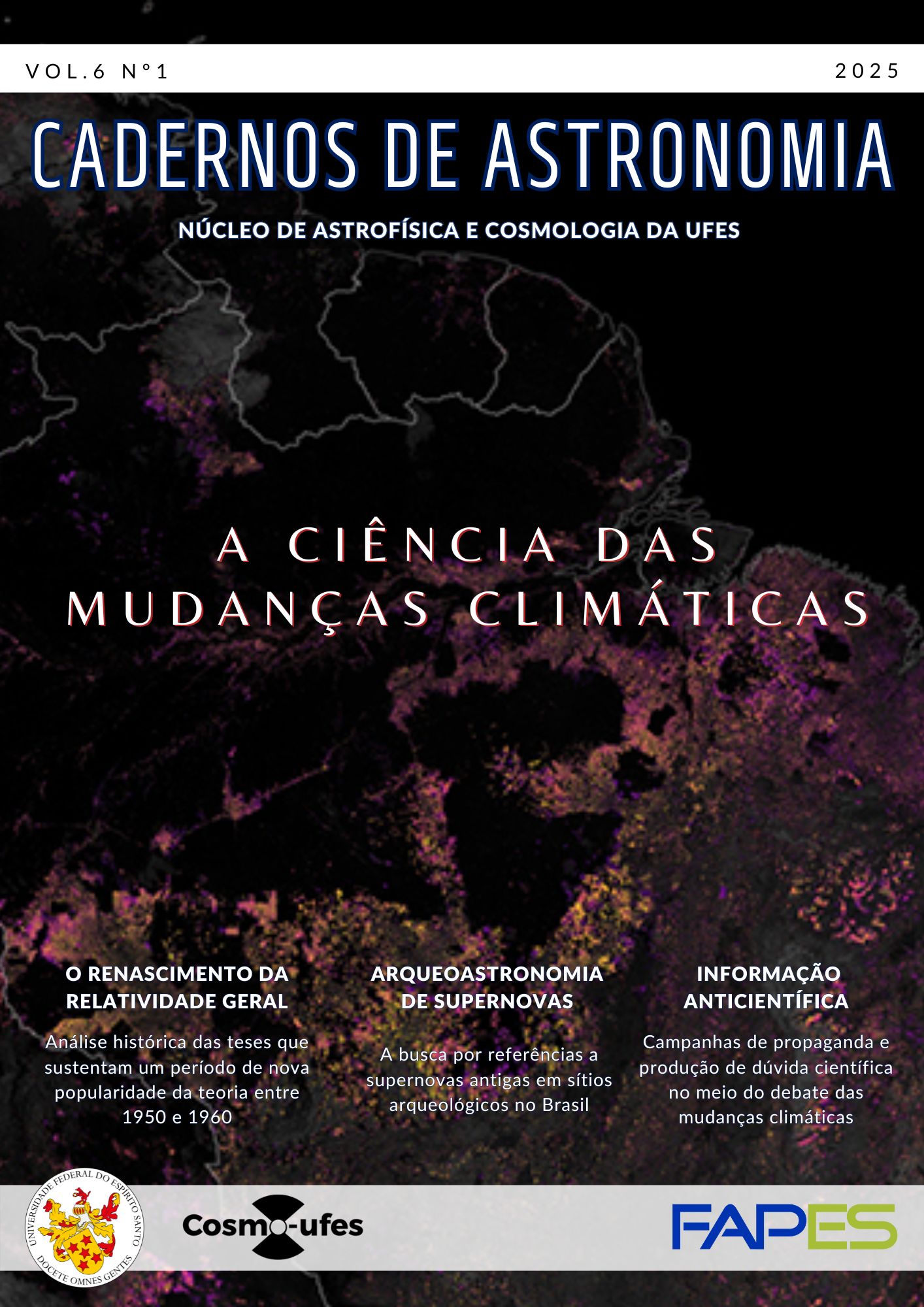Current Climate Changes
DOI:
https://doi.org/10.47456/Cad.Astro.v6n1.47590Keywords:
climate change, global warming, climate projections, South America, mitigationAbstract
Human development, which began around 300,000 years ago, has always occurred in parallel with natural climate variations. However, since the Industrial Revolution, human action has intensified the greenhouse effect, raising the average global temperature and altering weather patterns, resulting in severe impacts such as rising temperatures, changes in precipitation patterns and an increase in the frequency of severe weather events such as storms, tornadoes and hurricanes. This article explores the main current climate changes and how they are monitored through the analysis of historical data. In addition, it presents projections from climate models that allow us to anticipate future scenarios, including rising temperatures and changes in precipitation patterns, especially in South America. Finally, the text highlights the importance of concrete actions to mitigate greenhouse gas emissions, responsible for current climate change, using technologies already available. We conclude that, in order to face the climate emergency, it is essential to integrate Brazil’s human and natural resources, combined with scientific knowledge, in order to implement effective solutions to reduce impacts and protect the most vulnerable populations.
Downloads
References
[1] S. K. Gulev et al., Changing State of the Climate System, in Climate Change 2021The Physical Science Basis: Working Group I Contribution to the Sixth Assessment Report of the Intergovernmental Panel on Climate Change, editado por V. Masson-Delmotte et al. (Cambridge University Press, 2021), 287–422.
[2] Organização Meteorológica Mundial, Mais de 90% das mortes por desastres naturais ocorreram em países em desenvolvimento, ONU News (2023). Disponível em https://news. un.org/pt/story/2023/05/1814787, acesso em jan. 2025.
[3] AON plc, Climate and Catastrophe Insight (2025). Disponível em https://assets.aon. com/-/media/files/aon/reports/2025/ 2025-climate-catastrophe-insight.pdf, acesso em jan. 2025.
[4] J. M. Gutiérrez et al., Atlas, in Climate Change 2021: The Physical Science Basis. Contribution of Working Group I to the Sixth Assessment Report of the Intergovernmental Panel on Climate Change, editado por V. Masson-Delmotte, P. Zhai et al. (Cambridge University Press, 2021), 1927–2058.
[5] T. Ambrizzi et al., The state of the art and fundamental aspects of regional climate modeling in South America, Annals of the new york academy of sciences 1436(1), 98 (2019).
[6] M. Iturbide et al., Implementation of FAIR principles in the IPCC: the WGI AR6 Atlas repository, Scientific Data 9(1), 629 (2022).
Downloads
Published
How to Cite
Issue
Section
License
Copyright (c) 2025 Amanda Rehbein, Tercio Ambrizzi

This work is licensed under a Creative Commons Attribution 4.0 International License.






